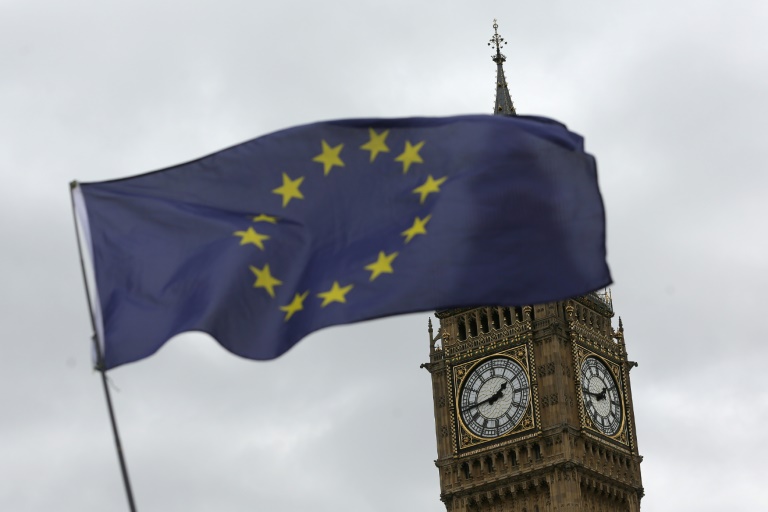A weakened Theresa May came under fresh pressure Tuesday to soften her Brexit position, adding to uncertainty about her negotiating strategy with Brussels one year after she became Britain's leader.

The prime minister marked the anniversary with a speech in which she appealed to the main Labour opposition party to help implement her policies, a month after losing her majority in a general election.
Amid rumours of plans to oust her, May accepted that “the reality I now face as prime minister is rather different” than it was before the June 8 election.
May took over last year after her predecessor David Cameron resigned in the wake of a shock referendum result that saw Britain vote to leave the European Union.
The austere vicar’s daughter was seen as a safe pair of hands who could heal a Conservative Party that emerged bitterly divided from the referendum.
But her government has been forced into a series of embarrassing U-turns and her gamble of holding an early election backfired spectacularly.
Key parts of her Brexit plan are now also under fire from critics within her own party who want a more moderate approach and whose voices are suddenly influential because of the election result.
The latest fronts in the battle between proponents of a “hard” and “soft” Brexit are Britain’s membership of the Europe’s nuclear regulator Euratom and the authority of the European Court of Justice.
Some Conservative MPs have reportedly warned they will rebel if May pushes ahead with her plan to withdraw from Euratom after doctors said it could jeopardise treatment for cancer patients.
The government has also hinted it may relent on its hardline position of ending the authority of the EU’s highest court in Britain from the moment the country leaves the bloc as expected in 2019.
– ‘Avoid rocking’ the boat –

The government this week publishes the Repeal Bill, a hefty draft law aimed at scrapping the cornerstone of Britain’s EU membership, the European Communities Act
The real showdown is expected after the government on Thursday publishes the Repeal Bill, a hefty draft law aimed at scrapping the cornerstone of Britain’s EU membership, the European Communities Act.
Opposition parties are already planning amendments to the bill, which would also adopt, amend or repeal thousands of EU laws that currently apply in Britain.
Vince Cable, a member of the pro-EU Liberal Democrats, said the complexity of the task and signs of the impact on Britain’s economy had led to increasing doubts that Brexit would take place.
“More and more people — politicians and civil servants — are saying actually, this thing isn’t going to happen,” he told a Westminster lunch.
The stormy mood among Conservatives prompted former party leader William Hague on Tuesday to ask: “Is it worth having a huge row to insist on a ‘purer’ version of Brexit? No of course it isn’t.”
Writing in the Daily Telegraph, he urged Conservative MPs to “avoid rocking that very vulnerable boat”.
May’s influence in the House of Commons took another dent on Monday when one of her MPs, Anne Marie Morris, used a racist epithet at a pro-Brexit meeting and was suspended from the parliamentary party.
– Go whistle –
Rumours have swirled in recent weeks about possible plots against May from within her own cabinet.
One possible alternative put forward is Brexit minister David Davis, who has dismissed the reports.
In an appearance before a parliamentary committee, Davis said the “major elements” of Britain’s Brexit strategy had not changed, although the “parliamentary arithmetic will dictate a certain sensitivity”.
Just hours earlier, foreign minister Boris Johnson said the EU could “go whistle” for the money it expects from Britain when it leaves the bloc, one of the first issues for negotiation.
With estimates ranging up to 100-billion euro ($112 billion), Johnson said the sums involved were “extortionate” — prompting accusations of arrogance from the opposition Labour party.
Davis laughed off his colleague’s remarks, refusing to comment directly, but said Britain’s objective was “not to pay more than we need to”.
Support Local Journalism
Add The Citizen as a Preferred Source on Google and follow us on Google News to see more of our trusted reporting in Google News and Top Stories.






